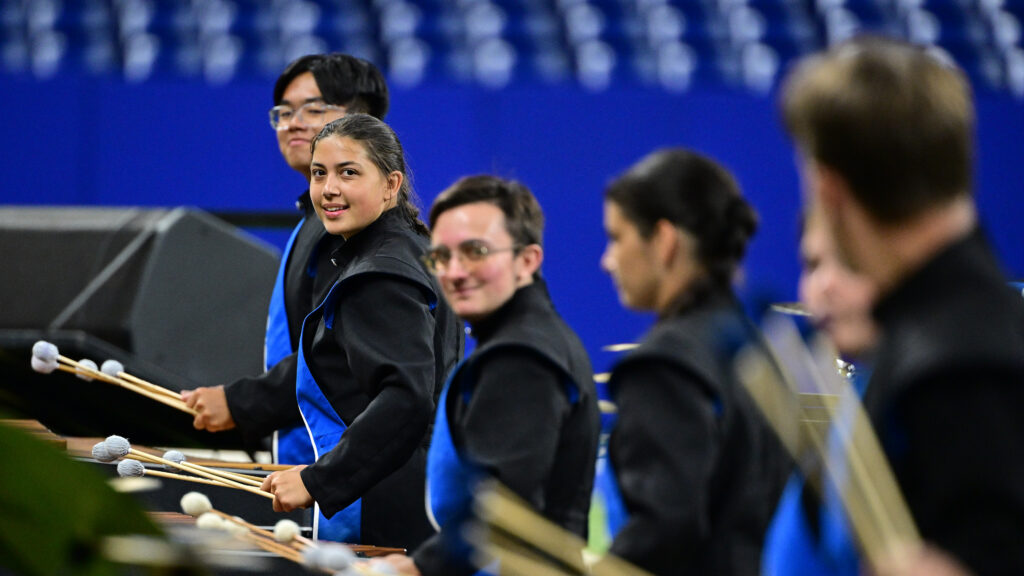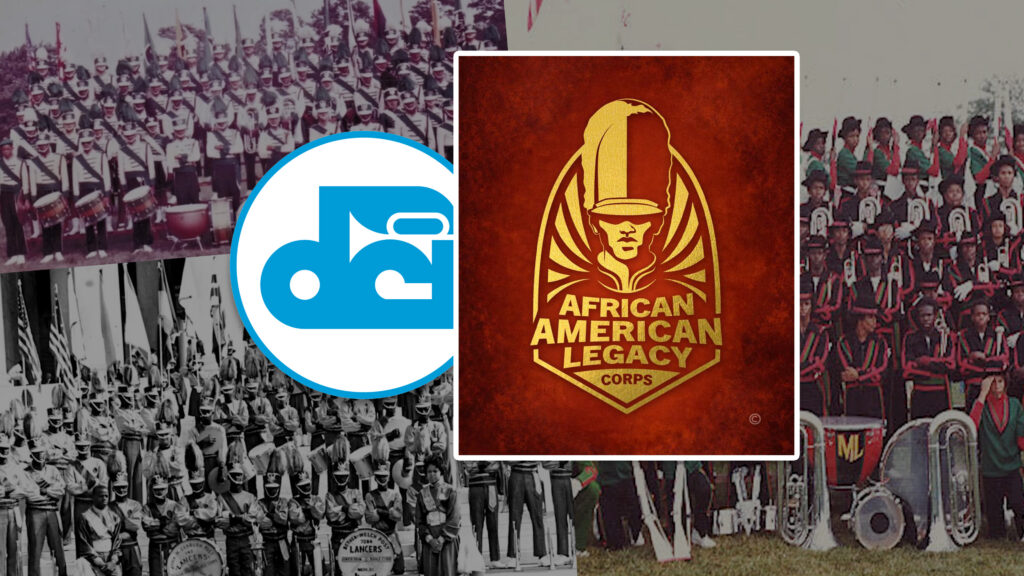
In 2006, the Drum Corps International World Championships went to Madison’s Camp Randall Stadium for the seventh time, the first visit to the beloved venue since it was modernized and enlarged. During much of the season, weather was a huge problem for corps and fans. A strong and persistent heat wave in the Midwest was responsible for many rehearsals being curtailed, and the important Masters of the Summer Music Games in Murfreesboro got rained out. On the field, Cavaliers’ “Machine” won top honors in Brass, Visual and General Effect, with playful robots leading the corps around the field. Phantom Regiment’s “Faust” almost took top honors with a first-ever coed guard and the percussion section winning its first high percussion trophy. In third place, Blue Devils’ Corleone family reunion took top color guard honors. Bluecoats earned the corps’ highest placement up to that point and the Cadets, defending Champions from 2005, had to settle for fifth place with a controversial “Volume 2: Through the Looking Glass” show that featured a giant costumed rabbit and corps members flying off tables.

Michael Boo was a member of the Cavaliers from 1975-1977. He has written about the drum corps activity for more than a quarter century and serves as a staff writer for various Drum Corps International projects. Boo has written for numerous other publications and has published an honors-winning book on the history of figure skating. As an accomplished composer, Boo holds a bachelor's degree in music education and a master's degree in music theory and composition. He resides in Chesterton, Ind.





